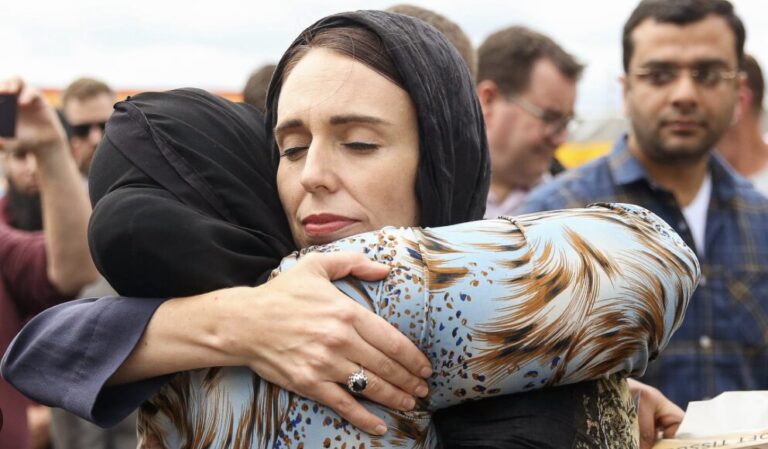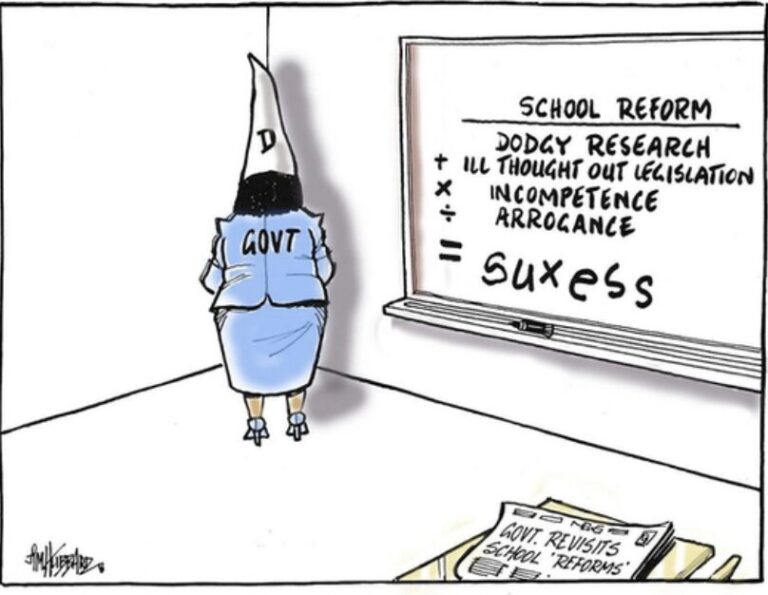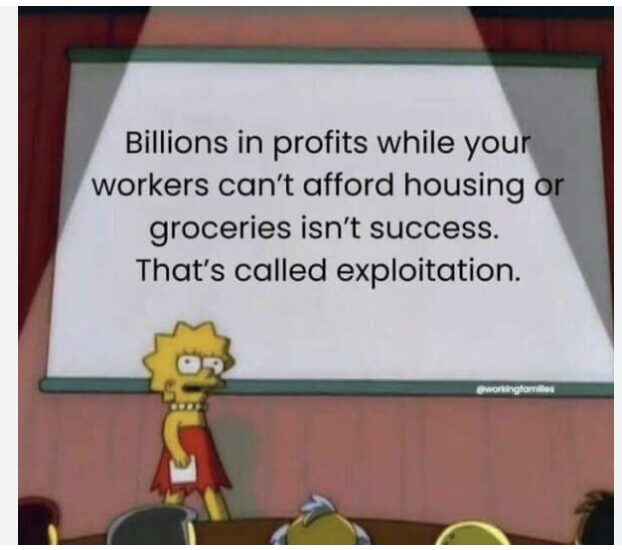We don’t comprehend how bad catastrophic climate change is going to be
I do not believe we are ready for this jelly..
‘This is a fight for life’: climate expert on tipping points, doomerism and using wealth as a shield
Climate breakdown can be observed across many continuous, incremental changes such as soaring carbon dioxide levels, rising seas and heating oceans. The numbers creep up year after year, fuelled by human-caused greenhouse gas emissions.
But scientists have also identified at least 16 “tipping points” – thresholds where a tiny shift could cause fundamental parts of the Earth system to change dramatically, irreversibly and with potentially devastating effects. These shifts can interact with each other and create feedback loops that heat the planet further or disrupt weather patterns, with unknown but potentially catastrophic consequences for life on Earth. It is possible some tipping points may already have been passed.
Dr Genevieve Guenther, an American climate communications specialist, is the founding director of End Climate Silence, which studies the representation of global heating in the media and public discourse. Last year, she published The Language of Climate Politics: Fossil Fuel Propaganda and How to Fight It, which was described by Bill McKibben as “a gift to the world”. In the run-up to the Global Tipping Points conference in July, Guenther talks to the Guardian about the need to discuss catastrophic risks when communicating about the climate crisis.
…the War on Workers Budget National released has gutted our environmental budgets as well as punch workers in the guts…
Minister for the Environment missing in action in Budget 2025 – Greens
Budget 2025 makes it crystal clear that this Government has no interest in protecting nature or securing a liveable future for our tamariki.
Budget 2025 makes it crystal clear that this Government has no interest in protecting nature or securing a liveable future for our tamariki.
“Our environment is in crisis. This Budget proves the Government simply does not care,” says the Green Party’s spokesperson for Environment, Lan Pham.
“They have no understanding that their so-called ‘laser-focus’ on the economy makes them blind to the indisputable fact that there is no economy without a functional environment.
“Not only is there no new funding in Budget 2025 for environmental protection, but they’ve taken cuts further than we even thought possible. They’ve raided the waste levy and initiatives which were designed to provide at least some basic level of protection for te taiao.
“While our communities are crying out for action, the Minister for the Environment is nowhere to be seen.
…the Fossil Fuel Industry technology National placed all their emissions target into turns out to be fake…
Carbon capture: Pivotal project for cutting greenhouse gas emissions looks shaky
A critical part of the government’s plan for cutting greenhouse gas emissions over the next five years appears to have fallen over.
A huge chunk of the government’s climate success rests on a single project, which the owner now says probably won’t happen because it doesn’t stack up commercially
…the Government slashed public transport, slashed making the Ferries rail capable and allowed corporate dairy off any inclusion of methane based on the belief this questionable technology would work just as we are now being told it won’t?
The Government slashed all our possible means of doing that based on the faith that these 3 magic beans being sold to us by the Fossil Fuel Industry would make a golden goose?
Y-e-a-h.
Folks, bullshit solutions from the very corrupt Industry that have spent 300 years polluting the planet won’t actually do what needs to be done.
The truth is that the marketisation of carbon credits is a fantasy that doesn’t offset any fucking thing.
It’s a vast scam, it always has been…
In the United States from the 1960s, pollution market proposals failed to materialise. Eventually, within the 1990 US Clean Air Act 263, coal, oil and gas-powered industry installations joined a sulphur dioxide permit trading scheme. A 29% emissions reduction for the following decade was less than the 60% achieved by comparable EU installations then subject to state regulation. Even the US decline was attributable to the Clean Air Act; the actual purpose of the emissions trading initiative was to”merely to try and make the regulated reductions cheaper for the polluting industries”.
Us economists nevertheless framed their sulphur emission reductions as a vindication of the price mechanism. At the 1992 Rio Earth Summit, International decision-making on carbon emission s and global warming mitigation was inaugurated by the UNFCCC. Under this rubric, the international Energy Agency and the OECD tasked an expert group to seta. greenhouse gas trading scheme for industrialised nations. Meanwhile, US Government advisors established a carbon trading negotiations framework for the Kyoto UNFCCC meeting in December 1997. AT this Conference of the Parties (COP), Al Gore’s delegation rejected arguments for a taxation-regulation approach to carbon emission reduction and forced through a market-based trading schema. Although President George W Bush later withdrew from the protocol in March 2021, the ideological commitment forged at Kyoto was pivotal. By this time the IPCC founded in 1989 had collated strong scientific evidence that growing carbon emissions were increasing global warming. Firming scientific consensus on anthropogenic climate change informed the first ever international gathering requiring countries to reduce carbon and other greenhouse gas emission. At the time, and even more in retrospect, COP3 represented a critical conjecture. Kyoto delegates were not simply dealing with a major configurable problem; fossil-based capital accumulation was destabilising the Earth system and life forms therein.
Within this surrounding totality, the Kyoto Protocol facilitated international, supranational, national, regional and inter-city architectures for carbon trading. Initially the Clean Air Development Mechanism (CDM) and Joint Implementation (JI), as distinct UN governing bodies, designed projects likely to reduce greenhouse gas emissions and advance renewable energy projects. The former body (CDM) covers countries without Kyoto-established emission targets. Joint Implementation carbon credits were available for countries with set Kyoto targets in the EU, North America and ex-Soviet Union alongside Japan. Carbon markets researcher Gareth Bryant has pointed out that specifiable reductions were a measure of “the difference between actual greenhouse gas emissions and a baseline scenario of what would have occurred in the absence of the project”. Such differences were rendered commensurable by carbon credits. Certified emission reductions for the CDM and the emissions reduction units for the JI could be sold to governments and, eventually, individual companies.
Obtaining and surrendering carbon verist on a counterfactual basis became an alternative to reducing carbon emissions at the source. The Kyoto Protocol , involving 193 countries, required governments of developed nations to reduce greenhouse gas emissions 5.2% below 1990 levels by 2012. Yet for the dame period, IPCC advice to its parent body (UNFCCC) called for 60%-80% cuts in carbon emissions at source. Controversially, the Kyoto Portico also identified six measurable and comparable greenhouse gases: carbon dioxide, methane, nitrous oxide, sulphur hexafluoride, hydrofluorocarbons and petrol fluorocarbons. In carbon markets, they were deemed as qualitatively equivalent, fungible and tradable units despite their different heat-trapping properties in the atmosphere over time. Growing integration between the EU Emissions Trading Scheme (ETS) and CDM drove carbon trades worth billions of dollars, involving thousands of industrial projects across supranational, national and subnational jurisdictions. Alongside the UN-administered CDM process, a voluntary offset market enabled developed countries and major corporates to meet emission reduction targets by providing investment assistance to developing countries anting to construct low and non-carbon projects. Such schemes were set within regulations beyond UNFCCC purview. Carbon markets themselves were, in part, extensions of global capitalism. The IETA, for example, representing 176 transnational financial, legal, energy and manufacturing corporations profited from the banking and borrowing of carbon credits, financial intermediation in carbon markets, plus the lobbying of government regulators for pollution rights. Major purchase of UNFCCC carbon credits included Barclays Capital, Deutsche Bank, BNP Paibas Fortis, Kommunal Kredit, Sumitomo Bank and Goldman Sachs.
After rapid expansion of overlapping emissions markets from 2005 to 2008, collapsing carbon prices and fragmenting carbon markets slowed the development of emissions savings projects. Oversupply of emission allowances devalued carbon credits and reduced investor interest in the CDM. From 2008 to 2011 inclusive, credits generated by new CDM projects declined year on year. In 2012, political economists Steffan Bohm, Anna-Maria Murtola and Sverre Spoelstra, in a climate issue anthology, declared, editorially, that the Copenhagen, Cancun and Durban COPs for 2009, 2010 and 2011, respectively, were “tremendous failures in terms of their inability to agree to a new post-Kyoto emissions reduction regime”.
At Durban, participants, especially from the EU, proposed a carbon crediting and trading initiative involving internationally, competing installations from multiple economic sectors including steel, cement, lime, pulp and paper, aluminium, plus upstream oil and gas production (flaring, venting). Mooted bilateral and unilateral market mechanisms would allow countries to assemble, jointly or individually, their own trading regimes and count the results towards global targets. Also discussed were new carbon offset mechanisms and projects for reducing emissions from deforestation and forest degradation (REDD+). After the Durban Conference, admisdt collapsing carbon prices, climate finance researcher Reyes concluded that “the creation of new market mechanisms would simply exacerbate the problem of an overproduction of emissions allowances”. This process would also reproduce the tendency whereby “offsetting increases rather than reduces greenhouse gas emissions”. Climate justice networks were similarly sceptical. Already the April 2010 Cochabamba World Peoples Conference on Climate Change had proposed the decommission of carbon markets, including the ETS. In February 2013, over 130 environmental and economic justice groups signed a declaration entitled “It is Time to Scrap the ETS!”
Major corporates, however, were committed to carbon pricing as the essential remedy for mitigating anthropogenic climate change. In September 2014, a World Bank group statement signed by 76 countries, 23 subnational regions and over 1000 companies and investors urged government leaders to price carbon, an initiative timed to coincide with the UN Secretary General’s International Climate Summit in New York. Over 120 state leaders attended alongside representatives from business, civil society and universities. The 2015 United Nations Climate Change Conference in Paris revealed a central incompatibility between diagnosis and prescription. All parties acknowledged the scientific consensus: anthropogenic climate change was extant and irremediable without substantial countermeasures. Protocols signed by 196 countries agreed to hold global average temperature increases under 2% and to pursue a 1.5% limit. A 5-yearly international stocktaking of emissions performance would begin in 2023. But to meet Paris Agreement targets, parties continued to follow market-based approaches, not direct regulation. Under a Nationally Determined Contributions (NDC) scheme, individual countries would voluntarily determine their emission mitigation targets subject to regular disclosure and review. Without an overarching carbon market architecture or governance structure, diverse approaches to mitigation accounting proliferated. Meanwhile, many corporates engaged in carbon-greenhouse gas emission credit markets and offset markets. During 2020, Nicolas Kreibich and Lukas Hermwille surveyed 482 large companies involved in balancing carbon-greenhouse gas emissions against carbon sink absorptions through carbon credit trading. Out of their sample, 216 companies with combined annual revenue of over US$7.5 trillion were participants in carbon offset markets for oil, chemical, steel, aviation and dairy companies plus others with high carbon/greenhouse gas emission levels. Such markets were perceived by companies as the only viable means for reaching carbon neutrality. Kreibich and Hermwille expressed “significant doubt” that such targets could be met.
Clearly, carbon credit and offset markets were, and are, unaligned to the broad concerns and goals of the Paris Agreement. Furthermore, companies and governments hoping to meet emissions reduction targets were not legally obliged tho do so. Such anomalies drew more scathing assessments. For James Hansen, Paris temperature reduction goals were fraudulent. Global gatherings of this kind were pointless without volume-based taxes on greenhouse gas emitters. Similarly, economist and climate policy analyst Clive Spash declared that “the aspirational targets bear no relationship to the reality of what governments and their business partners are doing”. In his view, they could not be met without planned, coordinated reductions in the extraction of fossil fuels and unless major emitters were held culpable. Hansen and Spash’s viewpoint was strengthened by fossil capitalism’s contemporaneous commitment to extreme carbon extractives. High-emitting shale oil and bitumen oil projects signified the futility of Paris Agreement aspirations.
The apparent inclusivity of global ecological concern and voluntarist carbon market initiatives obscured the totality of fossil-based global capitalism. Here, Tamara Gilbertson’s critique of such rhetoric and the introduction of NDCs is historically pertinent:
NDCs consist of a series of answers to questions on emissions reduction targets for each participating party of the UNFCCC regardless of GDP, development status or historical responsibility. Thus, the discourse shifted from problematising overconsumption and historical fossil fuel use in industrialised countries, to a narrative whereby climate change becomes an equally shared responsibility of all nations. This essentially whitewashes and erases its history and politics.
From the Kyoto Protocol to the Paris Agreement then, attempted international consensus building over climate goals and carbon emission schemes dehistoricized and depoliticised a global-temporal emergency.
The Anthropocene, Global Capitalism and Global Futures: Times Out of Joint – ProfessorWayne Hope
…look.
I believe, and have been arguing for some time, that climate change is the existential threat to late stage capitalism and that the reality and scale of what we face demands urgent and radical solutions.
There are many in agriculture who see first hand the impact of climate change and its increasing intensity.
Those voices are not as powerful as the Dairy Industry and the Pollution Industry and Big Oil.
What those industries want is tepid nothings that look like something is being done while that illusion only makes things worse.
The data doesn’t lie, fossil fuels extraction industries have doomed us to a feedback loop that will make life very difficult in failed state after failed state world.
There is a gravity to the problems we face that National as a politic al party beholden to Dairy are in total denial over.
The Greens, with their very excellent Green Jobs proposal, including the Ministry of Green Works that TDB has been arguing for, at least acknowledges the reality of where climate change is taking us…
Greens announce policy they say will create 40,000 ‘green’ jobs
The Greens have announced a ‘Green Jobs Guarantee’ policy it says could create more than 40,000 jobs.
The party released its policy in Tokoroa on Wednesday morning to mark ‘May Day’ that celebrates the international labour movement.
It wants to set up a Green Jobs Guarantee scheme to create 40,797 jobs with stable working conditions and good incomes.
The party also wants to establish a Ministry for Green Works – modelled off the disestablished Ministry for Works – to create around 25,000 jobs in the construction sector and a further 16,857 jobs from economic activity the Ministry generates.
It would expand the Jobs for Nature scheme to create an additional 15,797 jobs over four years.
The party’s plan would create these ‘green jobs’ by setting up a Future Workforce Agency/Mahi Anamata to plan for future workforce needs and link different workstreams that are currently under-resourced.
It wants to fund a renewed Jobs for Nature programme by partnering with local government, community organisations, iwi and hapū to support conservation work.
Part of its plan for the revamped programme would include short-term projects to provide jobs in areas facing high unemployment and longer-term projects to create training pathways.
Its Ministry of Green Works would be an expanded Rau Paenga, which is part of the Crown Infrastructure Delivery organisation.
…National are in complete denial of the truth, the facts and any relevance whatsoever.
So.
What could Eco Socialism look like in NZ?
Thankfully, Professor Wayne Hope puts forward a basic guideline in his must read book, The Anthropocene, Global Capitalism and Global Futures: Times Out of Joint:
Time Principles of Eco-socialism: A Declaration
Preamble
Myopic global capitalism is driven forward by a time-profit calculus of growth which disrupts all life. Beneath a parasitic billionaire class, mass worker exploitation, malnutrition, chronic hunger, famine, forced migration and urban slums, disassemble human time worlds. For the destitute, brute survival overrules hope and memory. Transnational corporations, as successors to colonial rule, continue the ravaging of ecological nature and Indigenous civilisation. Most blindly of all, global finance – investment and commercial banks, private equity companies, asset management investors, derivative traders – use real-time technologies to game clock time. Increasing dangers for humans and the planet are blocked out by 24/7 friction-free calculations of risk including climate risk. Within global capitalism, the fossil fuel industry and petro-states increase greenhouse gas emissions and global warming for the unborn. Future conditions of human life are mortgaged against the rising costs of heatwaves, forest fires, floods, receding glaciers, ice sheet contraction, tundra melt, coast-line submergence, island disappearance and deforestation. Generations to come will confront biodiversity decline as the synchronised life cycles of plants, trees, animals, birds and insects unravel. This tragic planetary history disrupts and brings pause to accelerated consumer lifestyles. Global tech giants struggle to impose virtual media bubbles upon anxious and harried user populations. Societies of the spectacle, globally mediated, cannot hide the spreading symptoms of a damaged planet. They can be reset under the time principles of eco-socialism.
Eco-socialism and its time principles
Eco-socialism is a movement, practice and organisational formation. It incorporates social cooperation, solidarity, cultural diversity and human interactions with nature. Eco-socialist approaches to life preceded colonisation and will succeed global capitalism. Right now, across the planet, multiple eco-socialist practices and programmes are emerging. Thus, an eco-socialist economy utilises renewable energy sources to meet basic social needs – food, clothing, shelter, health, education and meaningful work. This arises from public ownership over energy systems and the means of production. At local, regional, national and international levels, governments institute progressive tax regimes to fund infrastructural development projects. Representative, participatory democracies based on a rights-based legal system pledge to regenerate civil life and repair ecologies. The necessary time principles involved are these.
1: Knowing how to build sustainable ecological communities reflects a reconciliation between the human time of global history and the deep time of Earth history.
2: Repairing ecological life for future generations entails the synchronisation of biotic, animal, bird and insect life cycles.
3: The production and consumption of safe, nutritious food for all nurtures soil-based nutrient cycles and respects the rhythms of seasonality.
4: National agricultural policies prioritise domestic farming traditions of food self-sufficiency over the fast turnover times of corporate agri food production.
5: Energy for electricity grids is naturally renewable over ecological time rather than extracted on the basis of capitalist time.
6: Green, public-urban housing complexes within mass transport networks foster long-lasting intergenerational communities.
7: A steady-state macroeconomy involving re-use and re-manufacture of materials and consumer durable avoids the accelerated turnover times of global capitalism’s value chains.
8: Ending the incessant hyper-consumption of soon-to-be-obsolete products strengthens the steady-state macroeconomy.
9: Technologically enabled reductions in the work-time of waged labour, equally distributed, expand human temporal autonomy.
10: Operating businesses guided by the public memory systems of registries, deeds, statements of account and legal judgements replaced “off-balance sheet” financial speculation.
11: Major banks and other financial institutions fund long-run strategies of renewable energy development.
12: Through monetary and fiscal policies, democratic governments coordinate and plan the steady-state economy over intergenerational time.
13: Slow eco-tourism values the journey itself and fosters cross-cultural; appreciations of time.
14: Activating these principles is a political struggle over the meaning and usage of time
Māori have cultural memory of the first wave of white settler capitalist exploitation resource taking, they have the flax roots knowledge of what sustainability and environmental protection looks like, it is no wonder that international right wing think tanks always aim to attack indigenous rights first to enable the next generation of exploitative resource stripping.
On a global warming planet, the Treaty can protect all our rights when corporations come with their vampire capitalism.
The Climate Crisis was some event we feared at the end of the century, what we are seeing is an unleashing of heat events well beyond what we feared.
There is just no plan to adapt to this new reality when it should be the driving force to begin immediate and radical adaptation for what is coming.
We have no comprehension of what is coming and we are simply not prepared for the age of consequences.
Watching National, ACT and Corporate Farmers use their economic and political muscle to avoid responsibility for what comes next can only be resolved by civil unrest and a campaign of civil disobedience against those interests.
Just consider how the Corporate Farming Lobby have managed to avoid any tax on their pollution since mid 2004!
They have pushed and pushed and pushed it off for 20 years!
National have already promised ANOTHER 5 year extension which will mean the agricultural industry have managed to stop any tax on their pollution for quarter of a century!!!!!!!!!!!!!!!!!!!!!!
Claiming that NZs emissions mean nothing in comparison to China and India isn’t a justification to do nothing, it’s an acknowledgement that radical adaptation is the only move left because those Goliath economies have already doomed us to a dangerous climate change future!
The Left must force a bargain with Farmers and Growers for strategically essential reasons.
They are going to feed us when the famine comes.
A recent report on food security found NZ had incredibly low food security because it was so open market driven and refused to subsidise farmers.
Which is where we on the Left must drive the debate.
We should absolutely consider subsidising food grown by NZ farmers and horticulturalists and our seafood and meat and dairy that generates a 15% price reduction for all NZ produce consumed here.
For growers we need to protect our most productive growing land for food by giving those producers tax breaks to ensure they can continue to feed NZers first.
Rebuilding a direct link between the harvest grown here, the people who grow it and a grateful local market who enjoy the product WITH a 15% price reduction.
Climate change will kill global free market supply chains, we are locked into hyper-regionalism. We need to build new economic structures, subsidising NZ kai for the domestic market would lock in certainty for producers while strengthening food security for the population.
We have to find new ways of working together to ensure we can survive what’s coming.
The old greeds, the old hates and the old exploitations will no longer hold the system together if that system is melting in real time.
Super-rich warned of ‘pitchforks and torches’ unless they tackle inequality
Global elite told at London’s Savoy hotel of real risk of ‘civil disruption’ if more is not done to help struggling millions
This is the age of consequences.
Increasingly having independent opinion in a mainstream media environment which mostly echo one another has become more important than ever, so if you value having an independent voice – please donate here.







Oh yes, climate scientists working for oil and gas corps as far back as the 1950s flagged climate change as a result of the oil industry pollution.
Almost no one is going to voluntarily give up driving cars utes and tractors to ride bikes or stop burning gas for electricity or stop eating butter at the rate necessary to stop climate change.
What would a War On Fossil Fuel look like?
To blow up the coal gas oil industry would require a Manhatten Project that in the space of five to ten years could produce a Nuclear Fusion Reactor the size of a shipping container which could be mass produced. Plus advanced silicon battery technology to supercede Lithium ion for transport.
That scenario could save the planet from industrial global warming. The climate will continue to change as ever.
Climate breakdown, real events in real time, tipping points – what is there to argue about if the science is saying this is now on our doorstep and only going to get worse.
What do climate change deniers have that reputable scientists and modellers don’t. Do they not trust science? Or is it the narrative they don’t trust? Even among those who are taking notice there is the belief that adjusting to the impacts of climate change can entail business as usual. Alternatively, there is the belief that business as usual can somehow be mitigated by the pull of policy levers. Reduce greenhouse gas emissions to limit the extent of future warming, right? Alter the ways energy is produced and consumed, shift to more sustainable agricultural practices – worthy goals but not so easy to change human behaviour and even harder to shift the current economic paradigm.
Maybe climate change deniers have some trump card up their sleeve. What might that be? Ignorance? Don’t know what they don’t know? Distrust of science? Distrust of the narrative? A belief that extreme weather events are not unprecedented? There’s plenty of evidence to support that view:
https://hwe.niwa.co.nz/search/summary/Startdate/n-a/Enddate/n-a/Regions/all/Hazards/all/Impacts/all/Keywords/none/numberOfEvents/20/page/1
Yes indeed extreme weather systems hit New Zealand regularly. Remember Cyclone Bola nearly 4 decades ago? Cyclone Giselle that sank The Wahine in Wellington Harbour in 1968? Ad infinitum. More frequent and more intense? Well, that’s what the science says. And linked to global warming and caused by greenhouse gases emitted by the burning of fossil fuels, deforestation, and intensive agricultural practices.
Perhaps that trump card is knowledge – an intuition perhaps – of the bigger picture. The MUCH bigger picture. I recall seeing in Bill Bryson’s A Short History of Nearly Everything a passage that equated the stretch of Earth history to the outstretch of both human arms, with the arrival of humans on Earth representing a mere filing off a finger nail. That’s a mighty short period of time. A blink of an eye. To think us humans have fucked it up big time in such a very short time is hard to accept – considerably less than a blink of the eye in fact if we consider the mass burning of fossil fuels has only been around since the Industrial Revolution. From that perspective perhaps the skepticism of climate change deniers is justified.
Of great value is this item from RNZ – read now before it is interfered with or shoved to the backroom.
https://www.rnz.co.nz/life/lifestyle/can-you-turn-off-generative-ai-from-social-media-and-your-phone
“Diagram founder Tom Hovey, who helps organisations in NZ and the UK better understand AI, says developments in the industry are happening so quick that even the information he provides to clients is changing every day.
“Never before have we had such changeable (some would say “buggy” and inconsistent) software being used at such a grand scale. The speed of change is insane.”:
New Zealand had a Carbon Trading market which had the potential work relatively well – until the Labour Party bushwacked it for political reasons.
We do comprehend how bad catastrophic climate change is going to be.
We are starting to reap the consequences now of what was flagged in the 1970s by climate scientists such as James Lovelock. That was when governments and corporations should have been making changes. Tipping points have been reached. It is too late to stop the consequences of what is already happening.
If NZ was smart we would look to countries like Bhutan, put in heavy regulations and start planning for the difficult future. But we are not smart and the catastrophic future will be upon us before the next generation reaches old age.
How can we go hard when we have signed up to the powerful corpses to be light-handed. They – the gumming only have the right to be heavy handed with us, the peeps.
Hey, Shane Jones, seems you’re backing the wrong horse – see link below
The high cost of power is already negatively impacting our international competitiveness, thus we can’t afford to fall further behind ignoring the massive change (see link below) coming in the very near future.
This is going to be a total game changer
https://www.youtube.com/watch?v=UoX3ls_GjTA
If you have time, read “Uninhabitable Earth” by Wallace-Wells.
He describes in great detail what we have got ourselves into.
It truly is terrifying.
I suggest people don’t read it. Ximon I think can be trusted to feed digestible pieces to us. We are in danger of being shocked into rigidity and need to spend most time time in reforming our thinking and finding similar others and working together towards an achievable and positive goal. It is a war that we are fighting – against annihilation of all the good our parents have tried to do, or their era, and we are being faced with unavoidable greed and foolishness of rampant egos – the people who have followed in Ayn Rand-s pretentious footsteps.
So sort out who are true, good, capable, humorous or ironic and thoughtful capable people that you know and build your own network of whanau. All people on earth have been the tail left of WW1 atrocities under their idea of government and management, then 20 years later a vast world war plus nuclear. It is obvious that we have to reform – those of us that have a brain with time for meditation and a an affection for the amazing planet and we amazing creatures with so much possibility of transcending ourselves which is being misused, Start thinking right now and contact people you would like and have a beer and chat about how they feel about things to see if you can broach the further ideas that will seem more extreme. But you need to be face to face and outside the internet as it will happen that reliance on it will be a disabling effect for society as you can already notice.
I suggest people don’t read it. Ximon I think can be trusted to feed digestible pieces to us. We are in danger of being shocked into rigidity and need to spend most time time in reforming our thinking and finding similar others and working together towards an achievable and positive goal. It is a war that we are fighting – against annihilation of all the good our parents have tried to do, or their era, and we are being faced with unavoidable greed and foolishness of rampant egos – the people who have followed in Ayn Rand-s pretentious footsteps.
So sort out who are true, good, capable, humorous or ironic and thoughtful capable people that you know and build your own network of whanau. All people on earth have been the tail left of WW1 atrocities under their idea of government and management, then 20 years later a vast world war plus nuclear. It is obvious that we have to reform – those of us that have a brain with time for meditation and a an affection for the amazing planet and we amazing creatures with so much possibility of transcending ourselves which is being misused, Start thinking right now and contact people you would like and have a beer and chat about how they feel about things to see if you can broach the further ideas that will seem more extreme. But you need to be face to face and outside the internet as it will happen that reliance on it will be a disabling effect for society as you can already notice.